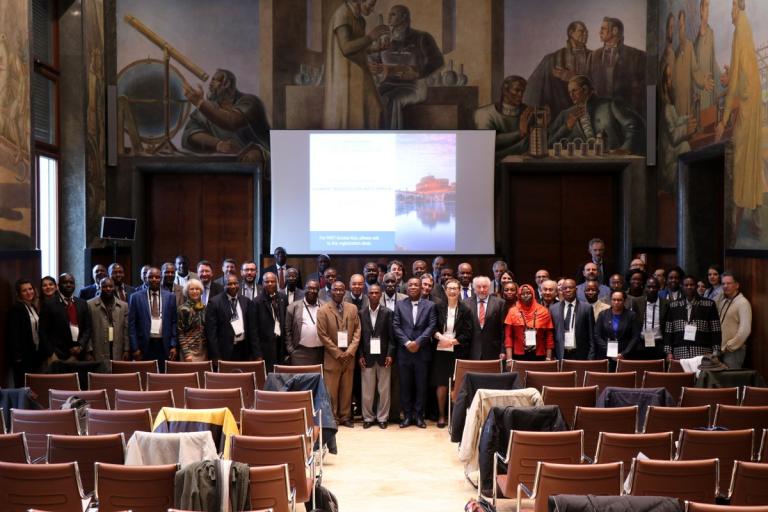West Africa Training Activities on Climate Change and Agriculture
The Climate Change Adaptation and Disaster Risk Reduction in Agriculture (PACC-RRC) Project held its Networking Conference in Rome from 4-5 February 2019.This event was the culmination of the PACC-RRC project that included four training courses for participants from 17 CILSS and ECOWAS countries of West Africa. The project addressed one of the highest priority areas for WMO Members—the development of climate services to mitigate the risks of climate change on agriculture—enabling stronger climate change adaptation measures and disaster risk reduction through better analysis of climate datasets and use of seasonal predictions.

The Climate Change Adaptation and Disaster Risk Reduction in Agriculture (PACC-RRC) Project held its Networking Conference in Rome from 4-5 February 2019.This event was the culmination of the PACC-RRC project that included four training courses for participants from 17 CILSS and ECOWAS countries of West Africa. The project addressed one of the highest priority areas for WMO Members—the development of climate services to mitigate the risks of climate change on agriculture—enabling stronger climate change adaptation measures and disaster risk reduction through better analysis of climate datasets and use of seasonal predictions. This final project event was held on the premises of the Italian National Research Council (CNR), hosted also by the Italian Meteorological Service. The project was funded by the Italian Ministry of Foreign Affairs and International Cooperation, Directorate General for Development Cooperation, and the Italian Agency for Development Cooperation.
The project was exemplary in many ways, including the collaboration of two WMO RTCs, the Italian Institute of Biometeorology (IBIMET) in Florence, Italy and the AGRHYMET Centre in Niamey, Niger. and the WMO Secretariat on the design of the project and many other themes including: use of blended distance learning and face-to-face training events; the promotion of mentoring and post-course sharing of knowledge and skills acquired by participants and the packaging of the learning resources produced for use in future initiatives—all of which were designed to enhance the long term impacts of the project. The courses focused on Climate Services for Disaster Prevention, Agricultural Services for Irrigated Crops, Methodologies for Climate Impacts Assessment and Communication with Users, and Agricultural Services for Rain-fed Crops. Each course had at least 50% of its time focused develop skills for practical applications of dataset development statistical analysis, and product generation.
The final networking event brought together 76 participants from 21 countries, including representatives of 3 embassies and 6 international organizations. The event was designed to provide a venue for decision makers and experts in the project region to discuss outcomes, examine continue needs, and consider follow-on capacity development initiatives. The Conference Statement includes acknowledgement of the successes of the project, areas for improvement, and a commitment to seek additional opportunities and resources to build upon the project outcomes.










